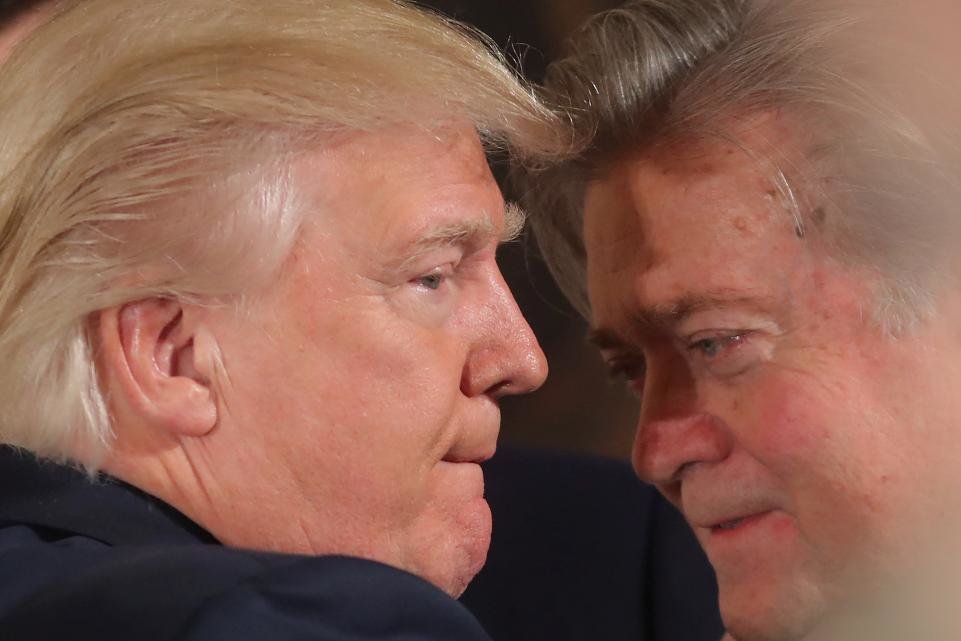Historian says Bannon is fond of thinkers on radical right

TEHRAN - Professor Mark Sedgwick, a British/Irish historian, says Donald Trump’s chief strategisit Steve Bannon “is interested in a whole range of thinkers on the radical right.”
Sedgwich, professor of Arab and Islamic Studies at Aarhus University in Denmark, is also of the opinion that Trump has a number of big ideas which are not always “coherent” but Bannon is the only person in the administration with a “coherent philosophy”.
Following is the text of Sedgwick’s interview with the Tehran Times:
Q: Some analysts have called Steve Bannon ‘the ideologue of White House and Donald Trump’. What do you think?
A: That is a fair description. President Trump has a number of big ideas, but these are not always coherent. The only person currently in a top position in the administration with a coherent philosophy--call it an ideology if you like--is Mr Bannon.
Q: At the moment, who are behind Trump’s policy making?
A: This is not clear. I would expect that there is still a lot of competition and disagreement, especially between experienced insiders like General McMaster, the national security advisor, and radical outsiders like Mr. Bannon.
Q: In his famous speech in 2014, Bannon cited Julius Evola, uncanny Italian philosopher which appealed to Nazism supporters. Why is he interested in this philosopher?
A: Mr Bannon is interested in a whole range of thinkers on the radical right. He used to run Breitbart, which is one of the major websites for promoting the radical right and its ideas. So it is natural that he is also interested in Evola. That does not mean that Evola is a major influence on him, though. He is interested in many thinkers, and other thinkers are probably more important for him.
Q: A report appeared in the New York Times ascribed the roots of anti-immigration to traditionalist thinkers such as René Guénon. What is your view?
A: The roots of anti-immigration are not any particular thinker but rather the human tendency to form "in groups" and "out groups." Small-scale immigration by people who do not look or behave very differently is not usually noticed, but large-scale immigration by people who look or behave differently always results in hostility. However, it is true that some thinkers who are inspired by Guénon and Evola, the so-called identitarians, have worked out what is in effect an anti-immigration ideology. They see individual cultural traditions as needing protection from admixture from other traditions, and thus from immigration. But this is not what is inspiring President Trump. He is not opposed to immigration in general--his wife is an immigrant, for example--but against Muslims. That covers both Muslims in the Muslim world and Muslims in America. Thus has nothing to do with Guénon, who himself converted to Islam, or Evola, who did not convert but was not unsympathetic to Islam.
Leave a Comment